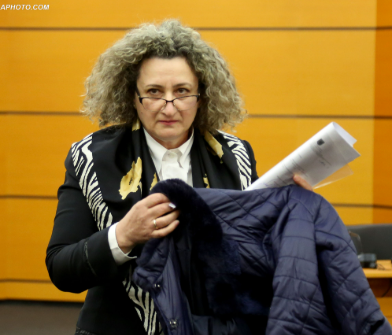Albania, FAO to cooperate on disaster risk management, climate change

Albanian Minister of Agriculture, Rural Development, and Water Administration Edmond Panariti and FAO Deputy Regional Representative for Europe and Central Asia and designated FAO Representative to Albania Tony Alonzi signed the “FAO Country Programme Framework in Albania 2015-2016.”
Agriculture accounts for 22.5 percent of the country’s gross domestic product in Albania. About 58 percent of the population lived in rural areas, and almost half work in the agricultural sector. As a candidate country, Albania stands in the anteroom of the European Union accession process.
The FAO-Albania framework agreement aims for improvements in four priority areas: conservation and management of Albania’s natural resources, disaster risk management and climate change adaptation in agriculture and rural areas, capacity development and policy support to the role of rural women, and alignment of agriculture and rural development policies with European Union standards.
“The Country Programming Framework provides FAO expertise in support of the aspirations of Albania to EU integration,” Alonzi said. “The agreement contributes particularly to sustainable and more resilient agriculture and rural development, improved food security and strong institutional capacity, and helps the country meet UN development goals and requirements for EU integration.”
Under the four priority areas identified by FAO and Albania for cooperation, a broad range of practical activities are foreseen. Albanian agriculture is exposed to natural hazards such as floods and droughts. The agreement highlights the need to disseminate good agricultural practices, provide training on climate change adaptation and explore the country’s woody biomass potential.
Despite women’s extensive involvement in agriculture, they do not have equal access to resources such as land, credit, agricutural information, or training and extension services. Plans call for increasing the number of public administration staff with training in gender competencies. The agreement also addresses the subject of land tenure, including the preparation of a national land consolidation strategy. It also foresees work in the area of sustainable management of natural resources. Improved institutional capacity in the areas of agricultural trade policies also features strongly in the agreement, with a view to improving competitiveness, increasing farmers’ resilience, supporting shorter food chains, and assessing food safety quality and standards to comply with European Union standards at farm and enterprise level including slaughterhouses. FAO has been providing assistance to Albania for more than 15 years, and is set to open a national office in Tirana in the coming months.
 KOHA JONË SONDAZH
KOHA JONË SONDAZH






















